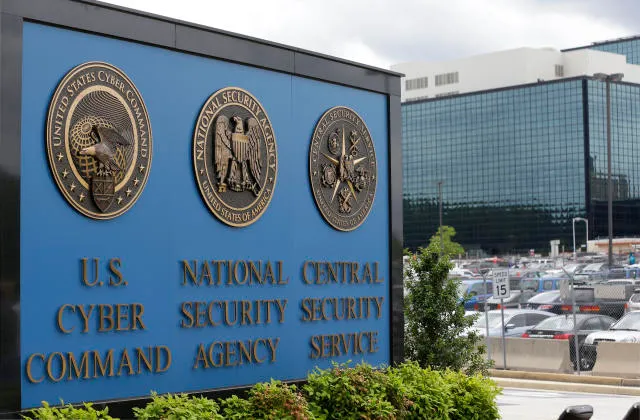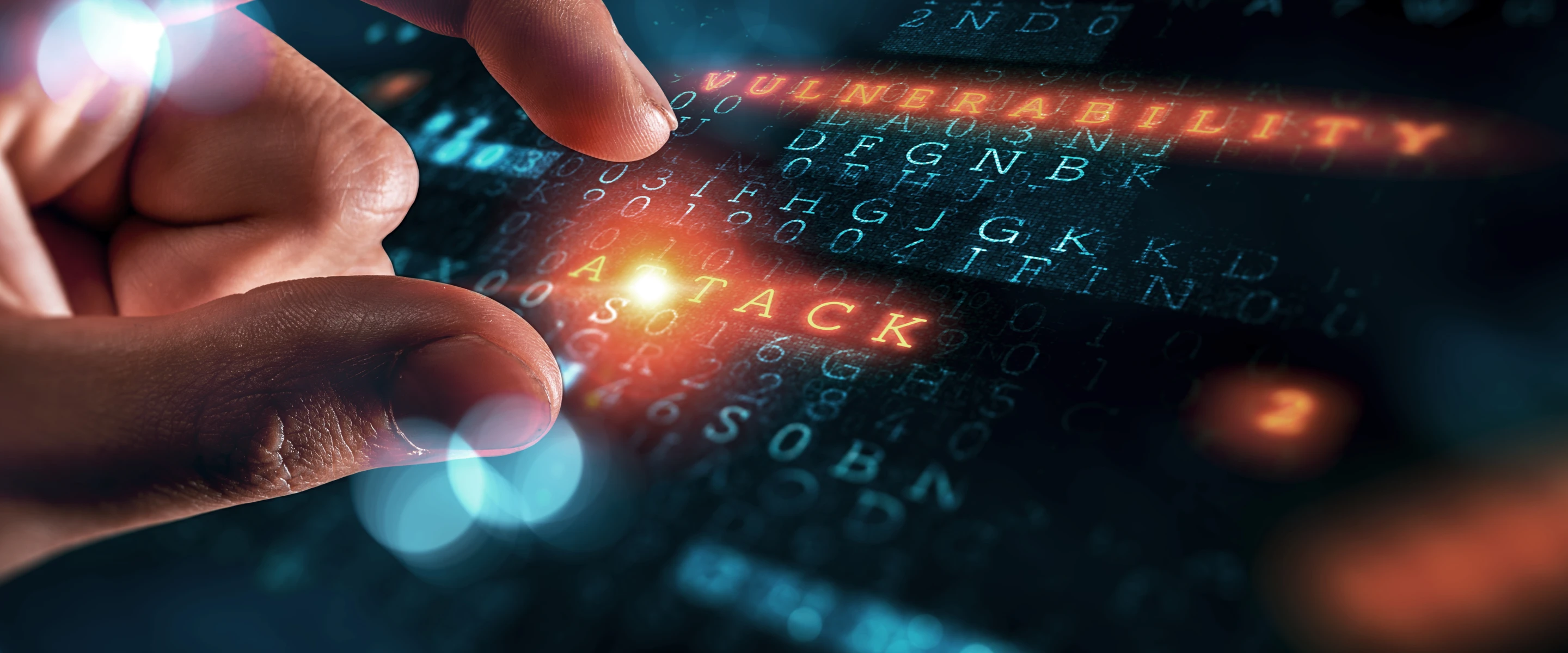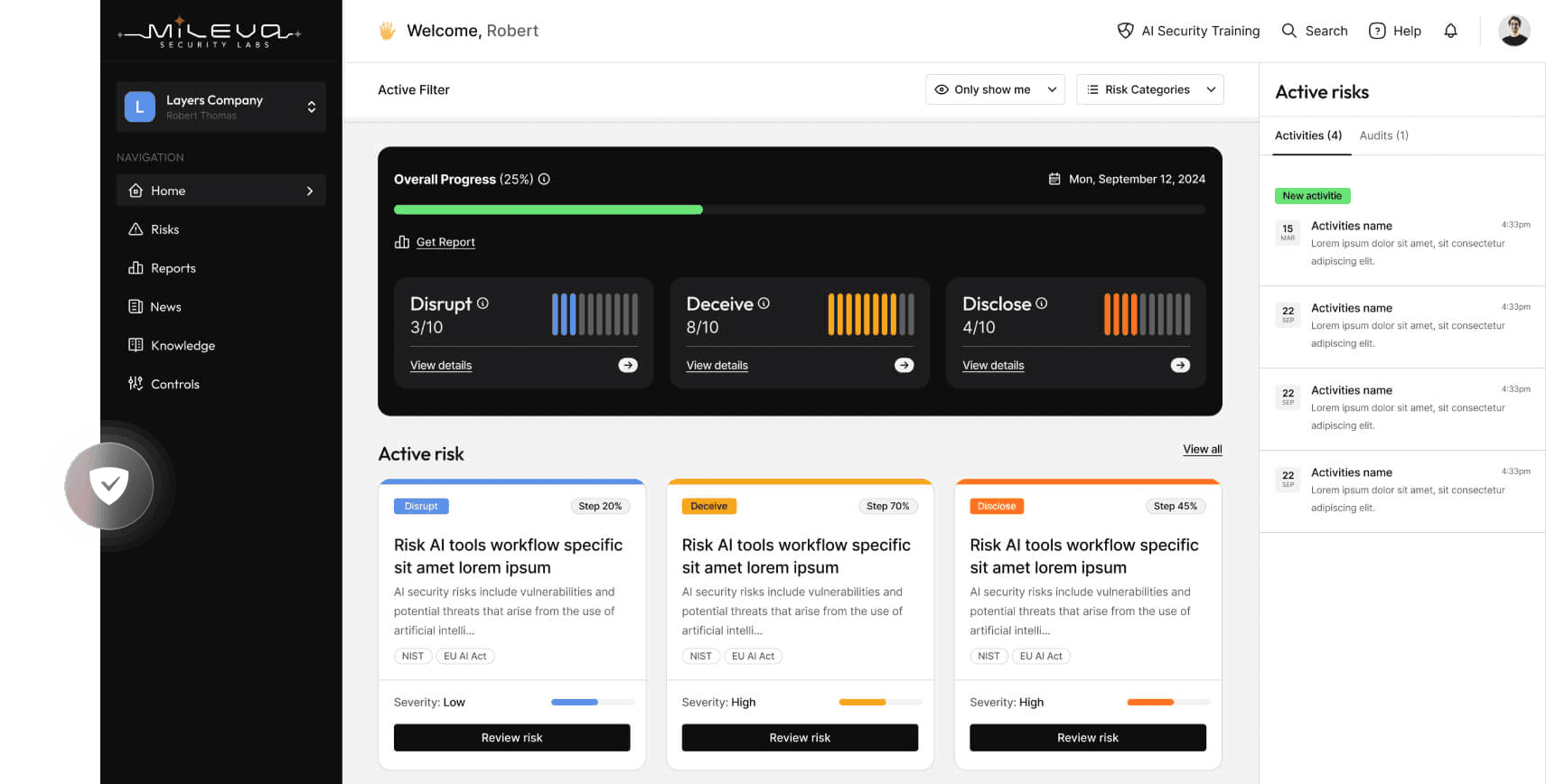Intro to AI Security Part 7: AI Security and National Security
You may not know this from looking at me (if you know me personally) or at my profile image (if you don’t) but seven out of the eight years I’ve worked in cyber security and Artificial Intelligence (AI) have actually been in Defence contexts. This has either been as a consultant on Air Force and Navy projects, as a postgraduate student at a Defence university, or as a federal employee. Therefore, AI in the context of national security is a particular passion of mine, and I couldn’t not devote an entire blog post to it.
It’s also becoming more topical as cyber security increasingly becomes not just a technical but a geo-strategic issue, and AI (both in terms of its use for cyber security, and regarding the security of AI systems) is joining the conversation. In fact, the NSA (National Security Agency) in the USA recently announced the launch of an AI Security Centre.
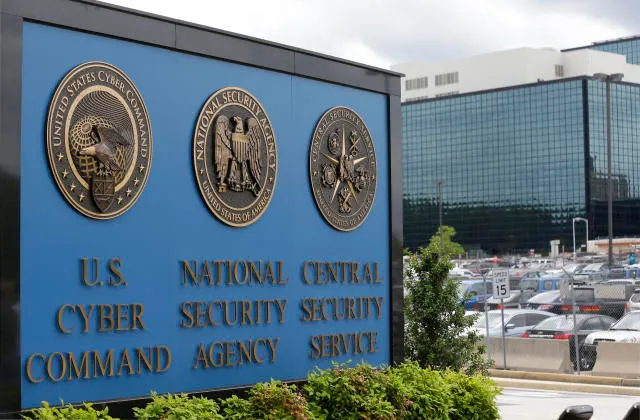
This intersection between artificial intelligence and national security is a rapidly evolving one. It introduces many benefits in that it can make existing manual work better, faster, and cheaper, with the aim is that all these are done to improve a nation’s security posture. However it also introduces risks in that the bad guys (criminals, terrorists, threat actors) can use AI to do all these things too, and they can also try to hack and disrupt the AI we use. However before we dive into these let’s take a look at what we actually mean when we talk about national security.
National security is the protection of a nation’s political, economic, and social systems from internal and external threats. It is a broader concept than most people realise. It encompasses fields most people think of regarding national security, like military defence, intelligence gathering, policy making, and cybersecurity. It also includes other fields like economic security, social security, and disaster preparedness.
The disciplines that contribute to national security are many and varied. They include:
- Political science: theory of political systems and how they function.
- International relations: understanding relations between countries.
- Military science: the study of warfare and military strategy.
- Intelligence studies: gathering and analysing information about threats to national security.
- Cybersecurity: protecting computer systems and networks from attack.
- Disaster preparedness: preventing and responding to natural disasters and other emergencies.
People who work in national security jobs come from a variety of backgrounds and professions. They may be military officers, intelligence analysts, diplomats, lawyers, policy analysts or scientists. Their work may involve anything from developing new weapons systems to responding to cyber attacks. These agencies also need all the other functions of any other organisation — human resources, finance, administration — and every role is essential to enabling an organisation’s mission.

Countries also work together to improve national security in a number of ways. They may share intelligence information, cooperate on military operations, or work together to develop new technologies. A recent example of this is the AUKUS alliance between Australia, the UK and the USA. This is a multilateral agreement between these three countries to jointly develop nuclear submarines. They may also establish international organisations to promote peace and security, for example the United Nations or ASEAN (The Association of Southeast Asian Nations).
It’s also important to keep in mind that national security is a shared responsibility, and is not just the responsibility of the government. For example, when threat actors launch cyber attacks they frequently target companies, and therefore these companies end up having a lot ofintelligence on threat actors (nation state and other highly competent threat actors are referred to as APTs — Advanced Persistent Threats). Therefore, companies frequently share this information with governments and companies so that TTPs (tactics, techniques and practices) of APTs can be communicated to anyone who might want to defend themselves. Governments will also frequently cleanse sensitive information in a way where it can be shared at an unclassified level, so that it can be used to protect companies and individuals in a way that doesn’t reveal sources or accesses.
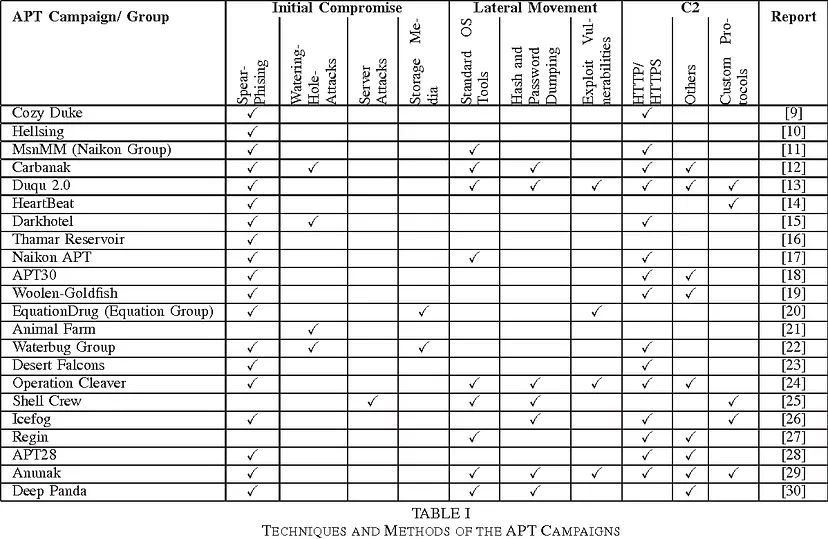
As individuals it is also important to maintain good cyber hygiene, not just for our own benefit, but because most threat actors are able to penetrate governments and organisations through individual employees with poor cyber hygiene. (They do also unfairly exploit our biases and psychology so don’t beat yourself up too much if you’ve ever been close to clicking on a convincing phishing email!)
From an AI security perspective, national security has always been impacted by the emergence of new technologies, and AI is no exception. National security has been massively impacted by cyber security and so analysing this history and impact can serve as a good starting point for understanding the potential impacts of AI.
History of the intersection of technology and national security
The intersection of technology and national security is not new. As long as humans have waged war, we have incorporated new technologies to help us win — we can look to the invention of gunpowder as an example of this. In the early days of computing, computers were used to break enemy codes in both World Wars — go watch the Alan Turing documentary if you want to understand more about the history of the Enigma machine and it’s impact to the Allies in World War II (unfortunately as well as how awful and prejudiced humans can be). In the 1970s, the development of the internet led to new challenges for national security, such as the spread of disinformation and the proliferation of cyber weapons.
In recent years, the rise of cyberwarfare has further highlighted the importance of technology in national security. Cyberattacks have become increasingly sophisticated and destructive, and they pose a serious threat to critical infrastructure, government networks, and even military systems. The transition from hot conflict (fights with weapons) and cold conflict (angsty threats of nuclear war aka. The Cold War) have evolved into grey zone conflict — cyber attacks that cause real harm but don’t necessarily fall under the bucket of ‘conflict’ in international laws of war.
In fact, General Nakasone (Commander of US Cyber Command and Director of the NSA) recently declared cyber security one of the United States’ top geostrategic threats.
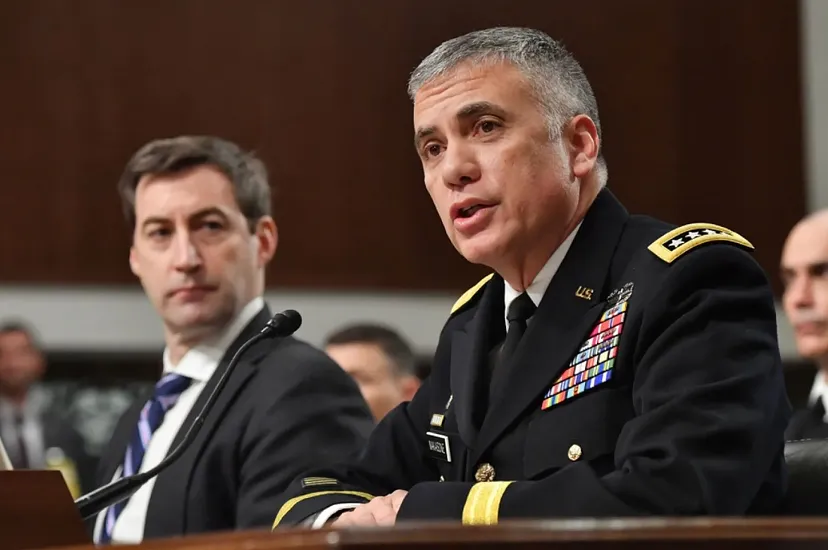
The rise of the cyber security threat has had a significant impact on national security. Cyberattacks can be used to steal sensitive information, disrupt critical infrastructure, and even launch physical attacks. This has led to a growing need for countries to invest in cybersecurity measures.
There are a number of roles involved in cyber security for national security.
- Security analysts: they monitor computer systems and networks for signs of attack.
- Incident responders: responsible for responding to cyber attacks.
- Security architects: they design and implement security solutions.
- Security researchers: develop new security technologies and techniques.
We discussed cyber security in blog 5 and how a variety of technologies can be used to protect against cyberattacks like firewalls, intrusion detection systems, and encryption. They also use threat intelligence to stay ahead of the latest threats.
Cyber attacks can be very costly. In 2021, the global cost of cybercrime was estimated to be $6 trillion. While there are massive impacts from cyber attacks in terms of data loss, IP theft, system downtime, and reduced trust, this loss of money also has a massive impact on a nation’s economic security. A big cyber attack waged on a country with a small GDP can have a massive impact on that country’s ability to provide services for its citizens.
AI and national security
AI has the potential to augment many aspects of national security.
For example, AI can be used for:
- Cybersecurity: detecting and responding to cyberattacks. They can be used to scan for malicious code, identify suspicious activity, and even predict future attacks.
- Intelligence gathering: AI systems can analyse large amounts of data to identify trends, threats and patterns. They can be used to track terrorist activity, monitor social media, and synthesise data from multiple sources.
- Weapons systems: new weapons systems that integrate AI capability could be more accurate and efficient. They can be used to control drones, target missiles, and even inform decisions about when to use lethal force.
- Border security: AI systems can be used to monitor borders and detect illegal activity. They can be used to scan for people and vehicles, identify suspicious activity, and you’ve probably seen them perform facial recognition at your local airport.
- Critical infrastructure protection: AI systems are being used to protect critical infrastructure from cyberattacks and other threats. They can be used to monitor systems for signs of attack, identify vulnerabilities, and even respond to incidents.
- The use of AI systems for national security is a rapidly evolving field. As AI technology continues to develop, we can expect to see even more innovative and sophisticated applications of AI for national security.
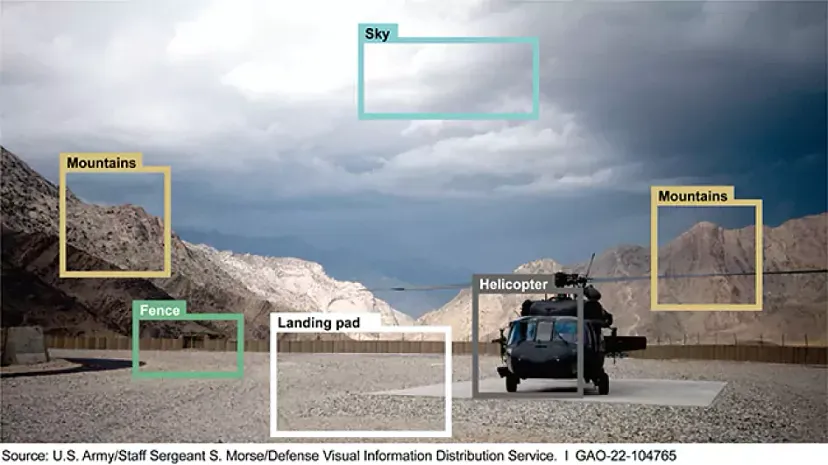
AI for military purposes
The use of AI in the military is a particularly interesting area of national security to dive into because of the vastly different implications. The application of AI to military engagements that may involve kinetic action, lethal force and safety and ethics implications mean that AI use here has a very different risk calculus. Discussion about AI use in the military so far have touched on:
- Target identification and tracking: AI can be used to identify and track targets more accurately and efficiently than humans, in the context of traditional battlefield conflict, urban warfare, airstrikes or assassinations.
- Cyberwarfare: AI can be used to develop more sophisticated cyberattacks, as well as to defend against them. This could have a significant impact on the ability of nations to wage war (offensively and defensively) in the cyber domain.
- Logistics and supply chain management: AI can be used to optimise logistics and supply chain management, which could improve the efficiency of military operations- reducing the cost of war and to improve the sustainability of military forces. This is an important consideration we’ve seen play out on both sides of the Russia-Ukraine invasion.
- Decision-making: AI can be used to help decision-makers in complex and uncertain situations. This can reduce the risk of mistakes, standardise the decision-making process, and augment human thinking with access to a greater amount of data, insight and processing power.
The use of AI in the military also raises a number of ethical and legal concerns, such as the potential for AI to be used to harm civilians or to create autonomous weapons systems that operate without human oversight. However, the potential benefits of AI for national security are also significant — it can help nations stay safer. It’s also important to keep in mind that it should be a risk-based decision — the potential impacts of AI in the battlefield are totally different to its use in the back office processes in an intelligence organisation’s finance department.
And now.. AI and Security
Now while I do always emphasise the difference between AI for security versus the security of AI as totally different fields (and one where I have a clear favourite — the latter), national security is an area where I do need to touch on both.
The use of AI as a threat is a big deal. AI-enabled cyberattacks could be more sophisticated and difficult to defend against than traditional cyberattacks. Autonomous weapons systems could pose a threat to civilians, and they could also be used to create new forms of warfare.
Alternately, the security of these AI systems themselves are also critical. If AI systems are not properly secured, they could be subject to deception, disruption and they could disclose sensitive information. And if adversaries can find ways to manipulate AI systems, they could use them for their own purposes, such as launching cyberattacks or spreading disinformation.
Ethics and law
In addition to the security challenges mentioned above, there are a number of other ethical and legal issues. Who should control AI systems, and how do we ensure they are used in a responsible and ethical manner? We must also consider how to prevent AI systems from being used to violate human rights or international law.
I say this a lot but at the end of the day I think it always comes back to risk. Especially in national security, there needs to be a good understanding of the potential risks associated with AI use (and misuse) and mitigate them accordingly. However, this should not be an excuse to not use AI altogether — for applications where AI risk can be managed, there’s no need to stifle innovation.
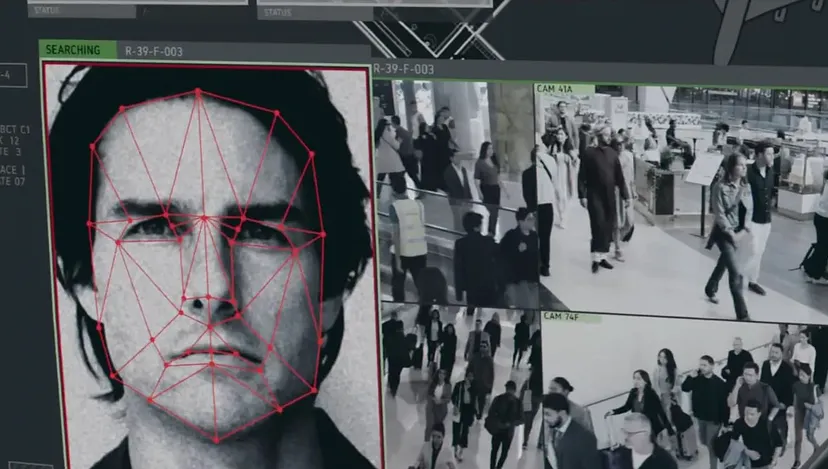
There are so many interesting books, podcasts and movies on the intersection of technology and national security. This is also a fun field to engage with and feel like Ethan Hunt. (Hacking AI is actually one of the core features of the plot of the latest movie!)
My favourite content on this genre — go give them a watch/read/listen!:
- Darknet diaries podcast
- True Spies podcast
- Teen fiction — Alex Rider and CHERUB series
- Digital Fortress by Dan Brown
- Life 3.0: Being Human in the Age of Artificial Intelligence by Max Tegmark
- WarGames 1983 movie
Now we’ve discussed AI for cyber security so much in this blog it would be remiss we we didn’t finally address it properly, and that will be the subject of the next blog.

